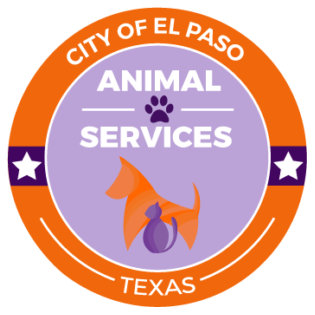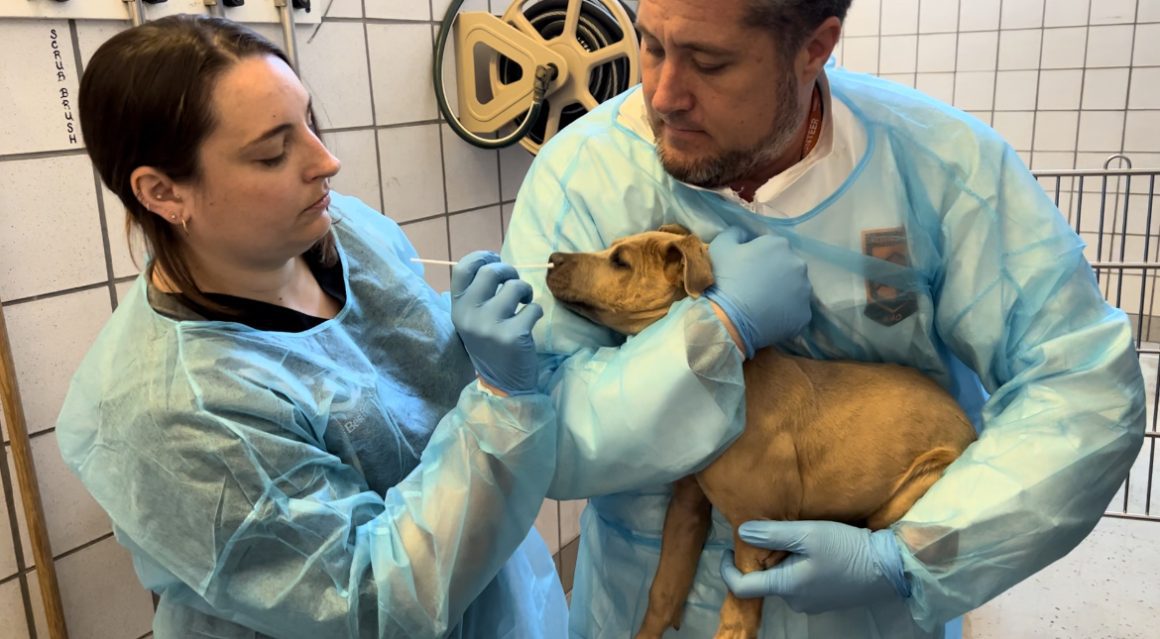City Focuses on Health and Wellness of Animals
EL PASO, Texas—The City of El Paso Animal Service is taking immediate action to address and eliminate a distemper and strep zoo outbreak.
Animal Services will be closing to the public for all services Saturday, February 25, and Sunday, February 26, in order to deep clean all shelter grounds, including public areas. The only services available these days will be lost pet reclaims and foster medical appointments via curbside service.
Additionally, the shelter has moved to an emergency-only admissions schedule until further notice to allow for additional testing of dogs that are considered high-exposure to these illnesses and to contain further outbreaks.
On February 21, 2023, staff under the direction of Animal Service Veterinarian Dr. Tony Chacon began testing a small sample of dogs after noticing a high presence of upper respiratory illness. The testing was done in conjunction with Houston-based veterinarian, Dr. Erin Katribe, who specializes in shelter medicine and outbreak assessment.
Of that small sampling, Animal Services confirmed 20 dogs tested positive for Canine Distemper Virus, a highly contagious and deadly disease in dogs. Two dogs also tested positive for Strep Zoo, a rare pathogen in dogs.
“Distemper is endemic to the borderland region, and most other southern states, which is why we continue to educate and encourage the community to vaccinate their pets,” said Dr. Tony Chacon, El Paso Animal Services Veterinarian. “With over 700 dogs already in the shelter, the only way for us to protect the animals in the shelter and the community is to temporarily suspend non-emergency intake.”
In 2022, El Paso Animal Services provided over 6,000 free Distemper and Parvo vaccines to community-owned pets to combat the presence of disease in the borderland region.
The Department has launched a testing plan to continue identifying and isolating any illness in the shelter, starting with dogs displaying symptoms of disease and continuing through asymptomatic dogs. A satellite location has been identified for emergency intakes to keep dogs isolated from the current shelter population.
Additional safety protocols are also in place to include carefully monitoring healthy animals who might have been exposed. Staff is also increasing the frequency of cleaning public and animal housing areas, isolating animals to their current housing areas, and enforcing strict PPE policies for all staff, volunteers, and visitors.
WHAT IS CANINE DISTEMPER?
Similar to human viruses such as COVID-19, Canine Distemper is a highly contagious and potentially lethal virus, which causes severe illness, attacking multiple body systems, resulting in a widespread infection that is difficult to treat. Canine distemper is spread through direct contact or airborne exposure. Signs of infection include clear or green nasal and eye discharge, lethargy, coughing, vomiting, diarrhea, difficulty breathing, and in advanced stages, muscle twitching and seizures. Distemper is a risk to all dogs, but unvaccinated dogs and puppies under four months old, or immunocompromised dogs, are particularly susceptible to canine distemper.
WHAT IS STREP ZOO?
Strep zoo is a bacterium normally found in horses, cattle, and pigs that rarely causes disease. But when this bacterium infects immunocompromised dogs, it may cause severe pneumonia. There is no vaccine for strep zoo and few warning signs. The bacterium has caused outbreaks of fatal pneumonia in shelter dogs worldwide due to the stressed and crowded conditions in the shelter. Signs of infection include fever, depression, vomiting, labored breathing, coughing blood, and discharge from the nose. The onset is typically sudden.
HOW CAN YOU HELP?
The community is encouraged to not only make sure their pets are up-to-date on their vaccinations, but also to make sure they keep their pets at home and confined, to reduce their chances of coming to the shelter. The City is also encouraging the community to foster or adopt low-risk dogs who have been identified by the medical team. Certain areas of the El Paso Animal Services Center and satellite adoption locations will still be open and available to the public, however, stricter disease prevention protocols will be in place for all visitors.
WHAT ARE EMERGENCY ADMISSIONS?
El Paso Animal Services is shifting to Emergency Operations and will only accept emergency intakes at the shelter until further notice. The community is asked to call 311 to report an animal that is sick, injured, aggressive, or in danger, in which a case will be generated and relayed to Animal Protection Officers to be addressed appropriately.
If the community finds a lost pet, they are encouraged to help reunite the pet with its owners. Chances are lost pets haven’t wandered too far from home and are much more likely to be reunited with their families if they stay within their communities. Animal Services is providing anyone that finds a lost pet with supplies and support to help finders reunite pets with their owners, including Distemper/Parvo vaccinations. For more information on how to help reunite a lost pet, visit www.ElPasoAnimalServices.org/FoundPetResources.
###
FOR A LIST OF FAQs, CLICK HERE



Leave a Reply
You must be logged in to post a comment.